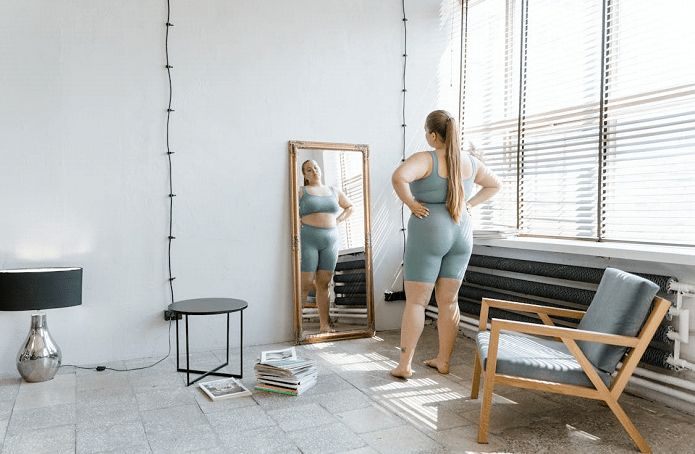Obesity and back pain often go hand in hand, as carrying excess weight can significantly strain the spine, leading to discomfort and long-term damage. Extra weight places undue pressure on the vertebrae, discs, and muscles, accelerating spinal conditions and increasing the risk of chronic pain. Furthermore, being overweight goes hand in hand with having a poor diet and a lack of exercise which can worsen spinal conditions and prevent treatment from having an impact.
In this piece, we will describe the link between obesity and lower back pain, discussing the various risk factors and how a person can begin their weight loss journey. The article will outline possible treatment options to alleviate lower back pain and other symptoms.
Obesity, Back Pain, and Spinal Health
Obesity, although not typically a direct cause of spinal conditions can certainly worsen the condition of the spine and increase the chances of a condition or a disease developing. The vertebral column, the bones that make up the spine, can weaken as a person grows older and this process can happen much faster if a person is obese. In severe cases, spinal conditions may require surgery such as spinal decompression surgery, spinal fusion, or the installation of a mechanical spinal device such as the Premia Spine TOPS System.
Degenerative disc disease is one condition that is much more common in obese people. This is when the cushioned discs that sit between the vertebrae lose moisture and deteriorate so they are no longer able to absorb impact when a person moves. This can result in damage to the vertebrae such as compression fractures. The discs could also become herniated which is when the disc’s soft inner tissue ruptures out of its outer shell and comes into contact with the nerves or spinal cord.
Spinal stenosis also becomes more likely when a person is overweight. This is when a person’s spinal canal narrows, impinging on the nerves that run through it. All of these conditions can cause a person considerable pain, a loss of mobility, and other discomfort such as a weakness in the legs or a burning/ tingling sensation.
To relieve symptoms, a doctor will recommend a range of non-surgical treatments which may include regular visits to a physical therapist, a healthier diet, daily exercises, medication, and lifestyle changes such as quitting smoking or reducing alcohol consumption.
If these treatments fail to relieve a person of their pain then the next step is typically surgery such as spinal decompression, a discectomy, or spinal fusion which all come with a degree of risk. These risks are amplified when a person is obese as recovery can sometimes take much longer, increasing the chances of diseases and blood clots developing. Carrying extra weight can also affect how well the operated area heals, with the possibility of spinal fusion surgery coming undone.
How Obesity Can Worsen Spinal Conditions
Being overweight, especially when clinically obese applies extra stress and pressure on the spine, resulting in further aggravation of spinal conditions, often making them worse. Being overweight compresses the vertebrae more than someone who is of a normal weight, and this can result in them being pushed out of position or slipping forward (spondylolisthesis). This can narrow the space in the spinal canal causing nerve compression (spinal stenosis).
In terms of disc degeneration, this extra weight can lead to the discs losing moisture quickly or suffering tears and ruptures. Although these issues are often associated with senior adults, a person who is obese could suffer from such problems at a very young age.

Osteoarthritis can be a side effect of obesity, a degenerative joint disease that can affect the joints in the spine, causing them to rub together and lead to symptoms such as pain, stiffness in the joints, and reduced flexibility in the spine. Deterioration of the vertebrae, accelerated by carrying excess weight also increases the chance of fractures, particularly in older adults.
As being obese can often result in poor posture and can impact a person’s ability to move freely, an obese person’s spine is often less healthy than a person who is not overweight. Poor posture can also result in the spine becoming misaligned which can have a significant impact on a person’s ability to walk normally and without pain.
If you are overweight and are experiencing lower back pain then it is recommended to visit a doctor as soon as possible to have the problem diagnosed and receive treatment.
How To Lose Weight To Improve Spinal Health
Exercise is one of the best remedies for poor spinal health and lower back pain, helping to strengthen muscles in the back, neck, and core. This doesn’t always mean a person needs to sign up for a gym as there are many exercises a person can do at home to build muscle strength and ultimately lose weight. Going for a daily jog or long walk is highly recommended, as is swimming once or twice a week.
Reduce the amount of time you spend sitting and if you work at a computer then schedule regular breaks to stand up, walk, and stretch. Sitting for long periods results in bad posture and causes the spinal column to become compressed. While working at a desk it can also be beneficial to invest in an ergonomic chair that can correct your posture to avoid slouching.
Of course, your diet must also be addressed. Watching your calorie intake by eating less and avoiding high-calorie food can help you lose weight quickly. One simple hack for reducing food intake is to use a smaller plate, this can prevent a person from eating large meals.

As well as eating less, you should also eat healthier. Avoid fatty, processed foods, reduce the amount of dairy you consume, and limit your salt and sugar intake. This means cutting down on treats like soda, candy, and fast food. Instead, try to focus on eating more fish, greens, and grains.
Focus on getting a good night’s sleep every night which can be achieved by avoiding looking at screens in the hour leading up to bed, creating a more comfortable sleeping environment, avoiding caffeine in the evening, and exploring the benefits of meditation.
Thank you for reading. We hope the advice in this article has been useful and we wish you luck on your weight loss journey.








